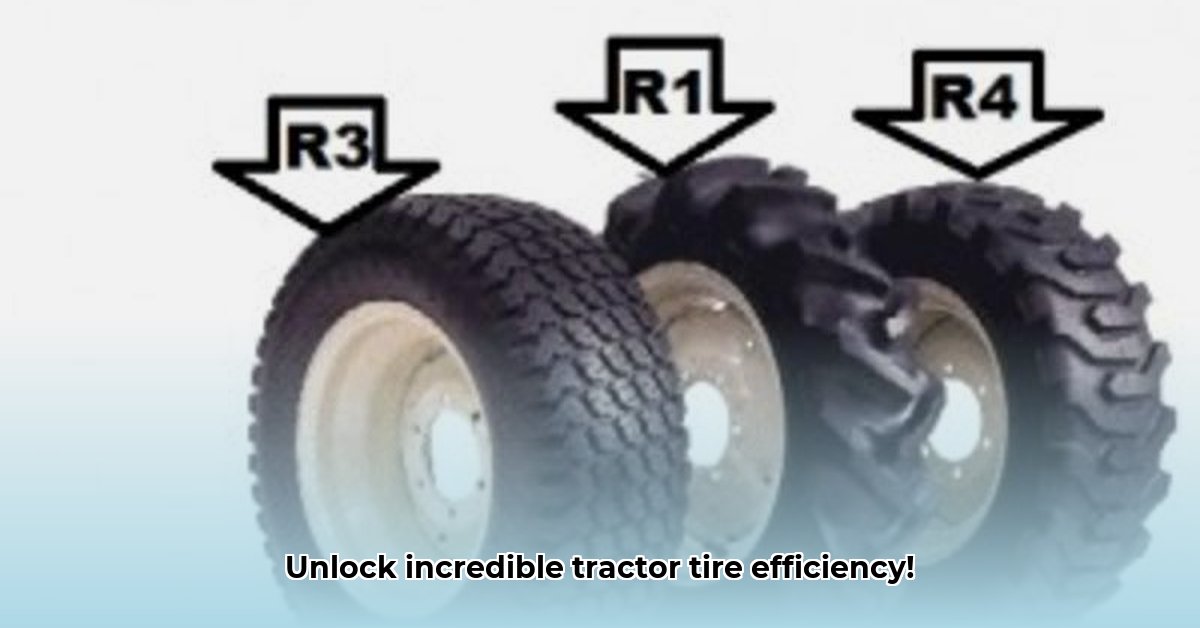
1100-16 Tractor Tires: A Performance and Sustainability Review of the Carlisle Farm Specialist
This review examines the Carlisle Farm Specialist 1100-16 tractor tire, focusing on its purported benefits regarding traction and flotation, while critically assessing the available data on its overall environmental sustainability. While anecdotal evidence suggests potential advantages, a comprehensive evaluation requires further investigation. This review aims to provide farmers and stakeholders with an objective assessment based on currently available information. For comparison, see data on other sizes like the 750-16 tractor tire.
Traction and Flotation Performance: Assessing the Claims
The Carlisle Farm Specialist 1100-16 is marketed as offering superior traction and flotation capabilities due to its multi-rib design. This design suggests reduced soil compaction and improved fuel efficiency, potentially leading to significant cost savings and environmentally responsible farming practices. However, quantitative data supporting these claims remains limited. Independent studies comparing the 1100-16's performance to competitors under controlled conditions are lacking. While the tire's design plausibly contributes to reduced compaction and improved fuel efficiency, further research is necessary to establish a definitive causal relationship. Does the unique tread pattern truly translate to substantial gains in these areas? Further testing is needed to answer this question definitively.
Sustainability Assessment: Addressing the Data Gap
A critical assessment of the Carlisle Farm Specialist 1100-16's sustainability is hampered by a significant lack of data. Information regarding the tire's material composition, manufacturing processes, and end-of-life management is currently insufficient for a comprehensive life-cycle assessment (LCA). Key questions remain: What specific materials are used (including percentages of each), what is the energy consumption involved in manufacturing, and how easily are the tires recycled or disposed of responsibly? The absence of this data severely limits our ability to accurately assess the tire's overall environmental impact, and the potential for mitigating its negative effects. Without this information, it's difficult to make an informed decision about its environmental impact. What would a thorough LCA reveal? We need this data to proceed toward sustainable farming practices.
Recommendations & Future Research: A Path Forward
To achieve a complete understanding of the Carlisle Farm Specialist 1100-16's performance and environmental impact, the following actions are recommended:
Farmers: Maintain detailed records of fuel consumption, soil compaction levels, and tire lifespan under diverse operating conditions. This real-world data will provide valuable insights.
Carlisle Tire & Rubber Company: Conduct and publicly release comprehensive life-cycle assessments (LCAs) detailing the tire's environmental impact from raw material extraction to end-of-life management. Invest in research and development for more sustainable materials and manufacturing processes.
Agricultural Researchers: Design and execute controlled field experiments comparing the 1100-16's performance to other tire models across various soil types and climatic conditions. This would provide quantitative data on traction, flotation, and fuel efficiency.
Policy Makers: Establish incentives and regulations that encourage the adoption of sustainable agricultural practices and promote transparency in the manufacturing and disposal of agricultural tires.
Conclusion: A Cautious Assessment
While the Carlisle Farm Specialist 1100-16 tire shows promise based on its design and anecdotal user reports suggesting potential benefits in traction and flotation, a definitive conclusion regarding its overall performance and sustainability remains elusive due to a lack of comprehensive data. Further research, including independent testing and life-cycle assessments, is urgently needed to provide a complete and accurate evaluation. This review highlights the need for transparency and rigorous scientific evaluation in the agricultural sector for informed decision-making toward sustainable farming practices. Only then can we accurately assess the true benefits and drawbacks of this tire, and ensure continued innovation towards environmentally responsible agricultural machinery.